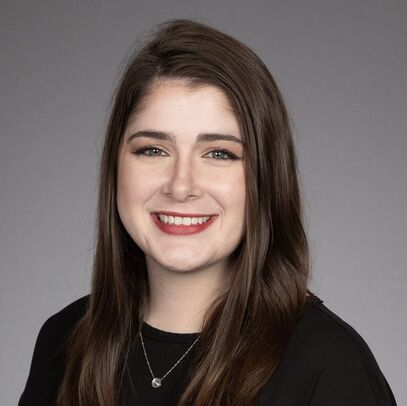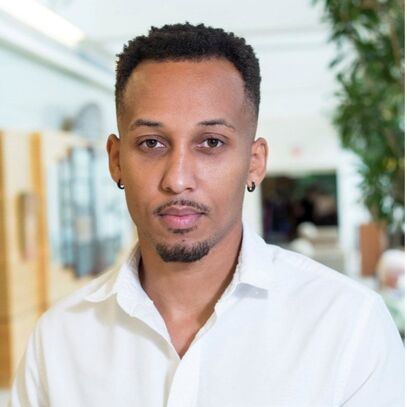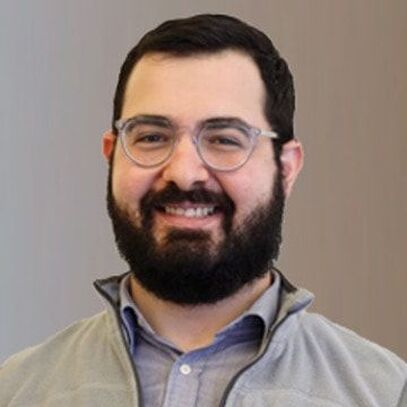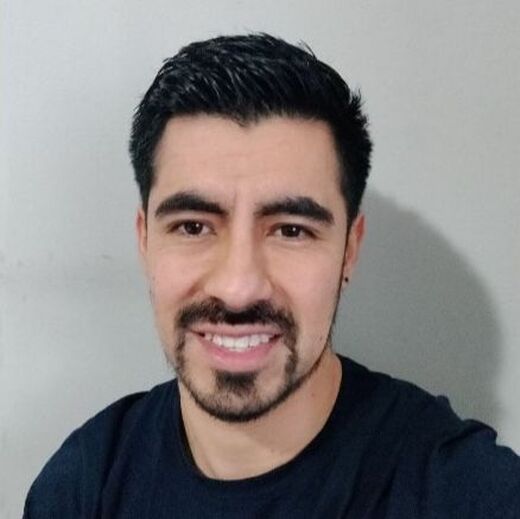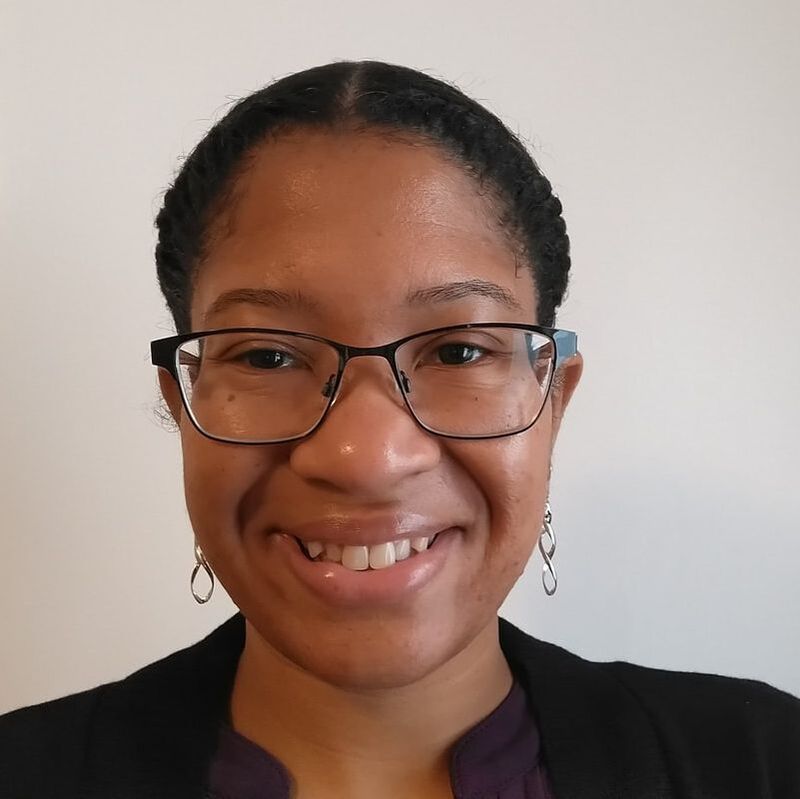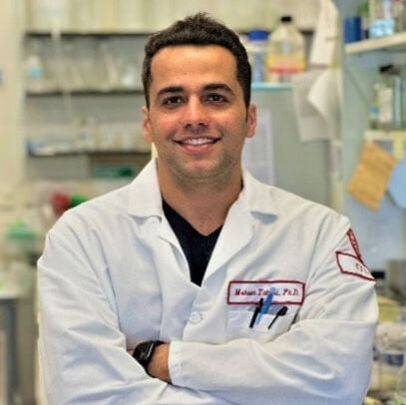Living and Working in Philadelphia
Tuesday, February 6, 2024
2:45 - 3:25 PM
2:45 - 3:25 PM
Speakers
|
Brennah Murphy, PhD
Postdoc, The Wistar Institute Dr. Brennah Murphy is an accomplished early career scientist with a diverse academic background. After receiving a B.S. in Neuroscience from Tulane University, Brennah moved back to her hometown of Oklahoma City where she earned a Ph.D. in Pathology from the University of Oklahoma Health Science Center. As a postdoctoral fellow at the Wistar Institute, she dedicates her time to pioneering research in the field of cancer immunotherapy and focuses on developing novel therapeutic approaches which harness the innate immune system’s potential to eradicate tumors. Brennah chose Wistar for her postdoctoral training because of the outstanding science and close-knit community at the Institute, as well as the seemingly endless collaboration opportunities both within Wistar and with labs at other institutions in the greater Philadelphia area. |
|
Henkel Valentine, PhD
Postdoc, Fox Chase Cancer Center - Temple Health Dr. Henkel Valentine completed his PhD in Jamaica, where he spearheaded a novel study on developing the first Jamaican prostate cancer cell line. Having visited Fox Chase Cancer Center during his graduate degree, Henkel decided to return to do a Postdoctoral Fellowship in the lab of Dr. Phillip Abbosh, MD-PhD. Henkel’s current research revolves around the development of a CRISPR-based mouse model for bladder cancer, focusing particularly on the PI3K/AKT/mTOR pathway, and its therapeutic potential. Using CRISPR, Dr. Valentine aims to recapitulate mutations commonly observed in bladder cancer patients, then target these mutations with kinase inhibitors to establish rationale for clinical evaluation of kinase inhibitors of the PI3K/AKT/mTOR in bladder cancer patients |
Moderator
|
Carlo Castruccio Castracani, PharmD, PhD
Clinical Research Study Manager, Children's Hospital of Philadelphia Postdoc (2020 - 2021), Children's Hospital of Philadelphia Dr. Carlo Castruccio Castracani is a Clinical Research Study Manager responsible for the management of research projects, which may include multiple moderate to large-scale clinical trials or studies. He orients and trains staff handling research administration activities associated with conducting complex studies. Carlo also ensures adequate coverage for study staff needs across multiple projects, which vary in administrative complexity. After graduating from Pharmacy School in 2016 and attaining a Ph.D. in Neurosciences from the University of Catania in 2019, Carlo became a member of the Rivella Lab in March 2020. Initially joining as a Postdoctoral Fellow and progressing to the Research Associate Scientist I role, he has been primarily researching gene therapy strategies for Congenital Sideroblastic Anemias (CSAs). These hereditary disorders, impacting mitochondrial iron metabolism, are scrutinized through a combination of in vivo and in vitro experiments, with a particular focus on X-linked sideroblastic anemia (XLSA) and its underlying mutations in the ALAS2 gene, disrupting normal heme biosynthesis. Carlo is also a past trainee of the Advanced Career Exploration (ACE) fellowship, organized by the Office of Academic Training and Outreach Programs (ATOP): from March to October 2023, he conducted a study on the burden of grants submission in the Office of Pre-Award Administration. |
Panelists
|
Ian Chapman, PhD
Postdoc, Monell Chemical Senses Center Dr. Ian Chapman earned his PhD in the lab of Dr. Max Fletcher at the University of Tennessee Health Science Center in 2022 while studying the role of experience and behavior in shaping the olfactory system. His doctoral work primarily focused on how odor information is encoded in the olfactory cortex, a brain region that supports odor perception. He joined the lab of Dr. Kevin Bolding in 2023 to continue studying this same research topic, while gaining additional experience with a broader array of physiology and analysis tools. Monell’s strength within the field of the chemical senses, his experience with Dr. Bolding’s work, and post-doctoral opportunities for Ian's partner were the factors that drew him to Philadelphia. |
|
Elham Javed, PhD
Postdoc, Thomas Jefferson University PhD (2014 - 2019), Thomas Jefferson University MS (2012 - 2014), Drexel University Dr. Elham Javed is an Indian citizen born and raised in Dubai, UAE. She came to the U.S. to pursue her graduate studies, first earning a M.S. in Molecular Medicine from Drexel University and then her Ph.D in Cell Biology and Regenerative Medicine from Thomas Jefferson University (TJU). She is currently a fourth-year postdoc at the Center for Translational Medicine at TJU. Her research involves identifying novel pathways that will help improve the current therapeutic strategies for asthma. Specifically, her research investigates Protein Kinase-A anchoring proteins (AKAPs) as structural- and/or signaling- elements in human airway smooth muscle cells. In addition to research, she is actively involved in the postdoctoral community where she is passionate about advocating for the issues associated with international trainees. Elham served as President of the Jefferson Postdoctoral Association from 2022-2023 and currently is the Junior Officer of the International Task Force for the National Postdoc Association. |
|
Enrique Olguin-Marinez, PhD
Postdoc, UPenn Perelman School of Medicine Dr. Enrique Olguin, a native of Mexico, holds a bachelor's degree in Pharmaceutical Biological Chemistry from the Universidad Nacional Autónoma de México (UNAM). He furthered his academic journey by completing a master’s degree and obtaining his PhD in Biochemistry in 2017 and 2022, respectively. During his graduate research, Dr. Olguin delved into the significance of interleukin-9 and type 2 innate lymphoid cells in the immune response against helminth infections. Subsequently, for his post-doctoral training, he became a member of Dr. Jorge Henao-Mejia's laboratory at the University of Pennsylvania. In this role, he is currently exploring the impact of obesity and diet on the long-term functionality of the immune system. |
|
Clinita Randolph, PhD
Postdoc, Drexel University PhD (2014-2021), Thomas Jefferson University Dr. Clinita Randolph is a postdoctoral fellow at Drexel University in the Department of Biology. She engages in both neurobiology research and STEM education research. At the bench, Clinita studies the role of TGF-β signaling in axon pruning using Drosophila melanogaster as a model system. Clinita’s STEM education research and engagement involves designing a Drosophila neural research-focused course-based undergraduate research experience (CURE) to increase opportunities for undergraduate students to engage in research. Clinita earned her Ph.D. in Biochemistry and Molecular Pharmacology from Thomas Jefferson University where she researched the cellular localization of a constitutively activated form of Gαq and studied mechanisms to disrupt its localization and signaling. Clinita also holds a B.S. in Pharmaceutical Product Development from West Chester University of Pennsylvania and an M.S. in Biological Sciences from the University of Delaware. |
|
Mohsen Tabasi, PhD
Postdoc, Lewis Katz School of Medicine - Temple University Dr. Mohsen Tabasi graduated from the Pasteur Institute of Iran in 2020 with PhD in Clinical Bacteriology. During his Ph.D., Mohsen engaged in numerous collaborative efforts, exploring host-pathogen interactions in various clinical research projects. Furthermore, he delved into the intricate world of gut microbiota, conducting research on its modulation in morbidly obese patients undergoing laparoscopic sleeve gastrectomy. He came from Iran to do his postdoc at the Center for Inflammation and Lung Research, at the Lewis Katz School of Medicine - Temple University, where he is studying the antibiofilm efficacy of S-Nitrosoglutathione (GSNO) synergistic with antibiotics against common bacteria isolated from cystic fibrosis patients. He is also working on investigating the efficacy of protease inhibitors in reducing lung inflammation in a preclinical model of chronic obstructive pulmonary disease. Mohsen chose Philadelphia due to the prestigious universities and medical institutions, providing access to high quality education and healthcare services. |
